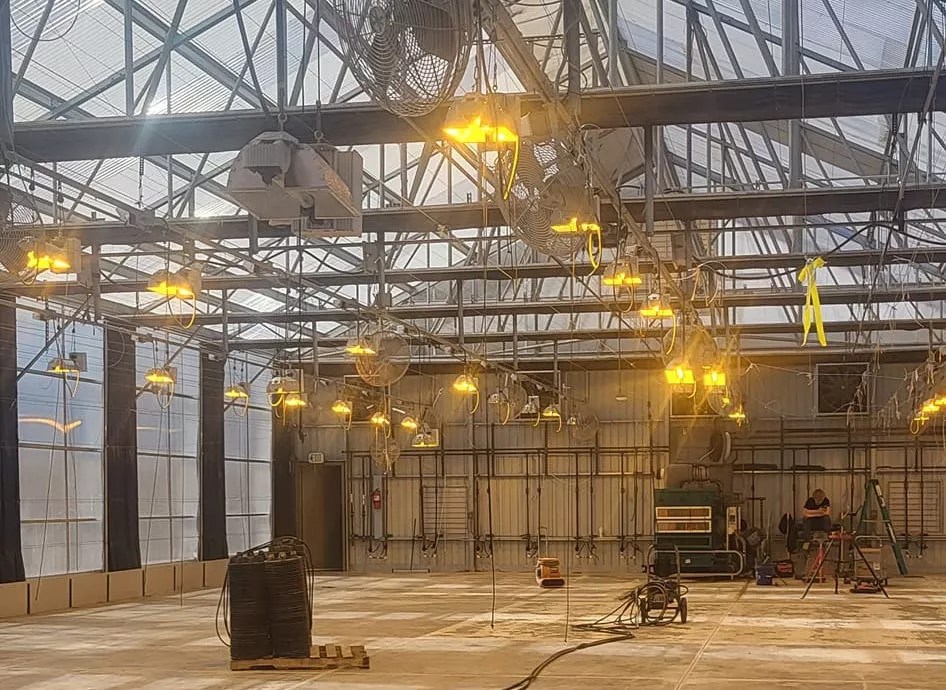
Brent McDonald

Audio By Carbonatix
With four dispensaries across the state, Apothecary Farms didn’t have enough internal cultivation space to supply its extraction needs. Until now.
Known for its signature line of marijuana concentrates, Apothecary Extracts, Apothecary Farms requires a lot of starting plant material to make wax, shatter, live resin, live rosin and other forms of extracted products. With a new, ten-acre facility in southern Colorado, the hash-heavy chain will finally be able to meet that demand without having to purchase marijuana from outside sources, according to marketing director Brent McDonald.
“We’re kind of in our own little valley, and it’s as beautiful as it gets out here. I can’t wait to see what this looks like with 10,000 weed plants. It’s going to be glorious,” he says of the new facility in Colorado City, about 25 miles south of Pueblo.
With two greenhouses and an outdoor grow capable of holding around 10,000 plants, the new cultivation space will enable Apothecary Farms to not only meet all of its extraction needs, but maybe launch a new flower line, as well.
“We’ve never done our own flower, but that’s in the works now. We just never had the space for it before,” McDonald explains.
Until now, Apothecary’s three grows could meet around 35 percent of the company’s extraction needs, with the rest of its starting plant material and all retail flower acquired from other marijuana growers. The new facility is expected to produce around 50,000 pounds of fresh-frozen starting material for live resin and rosin extraction, McDonald notes, and will allow Apothecary Farms to launch a new breeding line for in-house genetics.

The property is located in Colorado City, about 25 miles south of Pueblo.
Brent McDonald
“If you’re relying on other gardens to produce the plants that you need, you’ll just have a ton of consistency issues. At our own spot, we can rely on it much more. We know what it takes to grow good, clean plants that are free of bugs and pesticides,” he adds.
Part of what that takes includes a new growing manager; Apothecary Farms found him in Oklahoma, where it has a handful of medical marijuana stores. The new head grower specializes in natural and organic farming techniques, according to McDonald, and will soon transition the farm to living soil, a growing method that adds microbes to dirt for increased potency and yield. Over $150,000 worth of living soil and pumice stones will soon be trucked into southern Colorado to start the project.
Apothecary Farms declines to say how much it paid for the Colorado City facility, formerly owned by a company called Canna Source. The property came with around 10,000 pounds of marijuana biomass from the previous growers, which Apothecary employees are currently preparing for extraction.
As much of Colorado’s pot industry continues to retract during a recession marked by declining marijuana prices and dispensary sales, Apothecary has expanded aggressively, opening a new dispensary in Colorado Springs less than two months before closing on the new cultivation. If more stores become available, Apothecary could be interested in acquiring them as well, McDonald says.
“We would love more stores in Colorado,” he adds. “I think that’s definitely in our future plans. We currently don’t have any opportunities coming down the line for more stores, but that doesn’t mean something won’t pop up.”